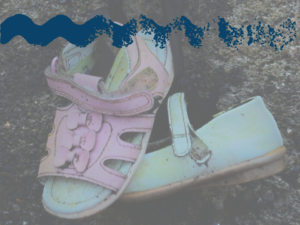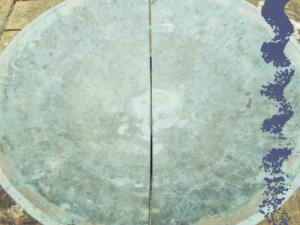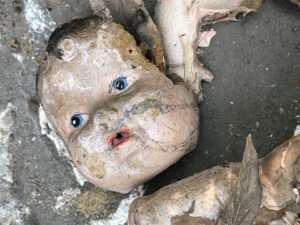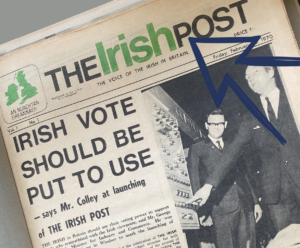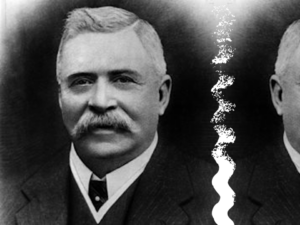
For a number of years, the Festival has shared information from Ireland Reaching Out (irelandxo.com) about how to use their genealogy tracker. Unlike many services, Ireland Reaching Out has inputting space for anecdotal messages, which can be searched. When trying to piece together long family histories, scraps of information can be extremely useful. One of their volunteer researchers, Carmel O’Callaghan, has used the system to produce an overview of one, famous Liverpool supporter.
Article contents
John McKenna (1855-1936)
Long histories
MacKenna is the English form of the Irish surname MacCionaoith.
Long ago, the family were originally based in Meath, but moved north into Clogher as mercenaries for the rulers there. As a result of their efforts, the MacKennas became lords of the Barony of Truagh.[1] This area borders the modern counties of Tyrone and Monaghan. Truagh was (and still is) the heartland of the McKenna clan. They ruled this territory until Gaelic rule ended in Ulster in the 1600s and now the surname is found in over a quarter of the households in the civil parish of Donagh.[2]
It was in Drumcaw (County Monaghan, Ireland) that Seán MacCionaoith, later known as John McKenna was born on 3 January 1855 to Patrick McKenna and Jane McCrudden.[3] At the age of seventeen, he -like many thousands of Irish people- took the boat to Liverpool to look for work. Arriving in 1872, he got work in a grocer shop, stacking shelves and other various tasks.[4]
Pursuits
However, it was his interest in sport that was to shape his future. He enjoyed rifle shooting, and joined the 4th Lancashire Artillery Volunteers and became a battery sergeant major.[5] In 1885 he was involved in setting up the regimental rugby club, after which he became a rugby player with West Lancashire County Rugby Football Union.[6] He was well respected and his ability, as a man of vision and action, even then.
An auspicious meeting
He felt his income as a player was insufficient and he became a vaccination officer for the West Derby Union, which managed several workhouses. At an Orange Order lodge meeting he met John Houlding, a local brewer and future Conservative mayor of Liverpool. The two men became friends sharing political and religious interests. Houlding invited McKenna to watch Everton Football Club play at Anfield. As a result, he became a regular at their games and his interest in rugby waned.[7]
Divisions
When Houlding split from Everton FC and formed Liverpool FC, McKenna became Liverpool FC’s joint secretary and took charge of their team affairs. In their first season they won the Lancashire League.
McKenna saw a notice inviting clubs to apply to join the Second Division of the Football League. Buoyed by their recent success, he suggested they apply. William Barclay -the administrative secretary- did not approve of them joining the Football League. Cunningly, McKenna completed the application using Barclay’s name and address. When Barclay received a telegram, proclaiming that Liverpool was elected and inviting him to come to London the next day, McKenna had to explain himself. He had to persuade Barclay, and the club directors, that this was the best option for the club, which he managed. They sent him to London as their official representative, from where he returned with Liverpool on the season’s fixture list. This move changed the history of the club.[8]
Success demands change
On 2 September 1893, Liverpool FC played their first Football League match, away to Middlesbrough Ironopolis, winning 2–0. McKenna was vindicated and Liverpool FC went on to win the Second Division title.[9]
McKenna changed the club strip from blue and white to red shirts and black shorts and decided the club needed a first team manager. In 1896, he persuaded Tom Watson -who’d won three First Division League titles with Sunderland FC– to come and manage Liverpool. They won their First Division Leagues in 1901 and 1906.[10]
McKenna proved to be an extremely capable administrator. He served as vice chairman from 1900-1909; chairman from 1909-1914 (and again 1917-1919) and a director until 1922, when he retired from Liverpool FC.[11] He was also part of the management committee of the Football League from 1902; vice president in 1908, becoming president in 1910, a position he held until his death in 1936, as well as vice president of the Football Association. Liverpool was always close to his heart and -as president of the Football League– he officially opened the newly roofed and extended Kop at Anfield.[12]
Passing
Houlding
John Houlding died in 1902, ten years after the Everton/Liverpool split. It was McKenna, along with William Cuff, Everton’s equally brilliant administrator that helped heal the split. At Houlding’s funeral three players from Everton and three from Liverpool were pallbearers and they carried his coffin into the church and to his grave in Everton Cemetery.[13] This was the start of co-operation between the two clubs. The clubs launched joint programs and supported one another at various events.[14] Cuff and McKenna became members of the International Selection Committee that picked the England team and they both worked hard to keep the game from corruption.[15]
McKenna
McKenna was strongly opposed to gambling. He fought in vain to keep the betting pools out of the games. He felt poor people would squander their meagre income in the hope of becoming wealthy. McKenna would lead the fight as president of the Football League. This fight would ultimately hasten his demise. In March 1936, after a special meeting in Manchester to discuss the pool issue, he slipped and fell at the railway platform. A week later, he travelled to Inverness to watch a Scotland/England game, but on his journey home he became ill and was rushed to Walton Hospital. He died on 22 March 1936 aged 81.[16]
His wife, Charlotte Maria had died in 1909. They had no family, however huge crowds turned up at St. Margaret’s Church (Anfield, Liverpool), on 26 March 1936, in testament to McKenna’s standing and reputation within the football fraternity. As at Cuff’s funeral, three Liverpool and three Everton players followed McKenna’s funeral casket down the aisle, while directors from both clubs were in attendance.[17] Large crowds also gathered at Smithdown Road Cemetery where he was buried, while along the route, every house and shop had their blinds closed as a mark of respect.
Tributes
There were many wonderful tributes paid to him including the following excerpt from his best friend, William Cuff, Everton chairman:
‘He will live long in the memory of all who had anything to do with the governing of football. Fearless, outspoken, and absolutely honest, he was well-named ‘Honest John’. The Football world in general is under a very deep sorrow’[18].
Almost a year later, Cuff unveiled a memorial plaque to John McKenna in the foyer at Anfield. In August 2011, in Glaslough (Co. Monaghan, Ireland), another plaque was unveiled near to where McKenna was born. Keith Faulkiner, author of Emerald Anfield, said of McKenna’s achievements that:
“The course of history has proven John McKenna to be one of the most powerful and successful men at Liverpool Football Club – the third most important figure, in my opinion, after only Bill Shankly and the club’s founder John Houlding. The people of Monaghan should be proud of this history and proud of ‘Honest’ John McKenna – who is arguably the greatest Irishman who has ever been involved with the game of association football in Britain”[19].
May he never walk alone.
Carmel O’Callaghan, 2023.
We’re indebted to Carmel for her in depth work and great article. Thanks go to her.
A useful tutorial, on using Ireland Reaching Out’s services, recorded during a previous Festival, can be seen below.
Footnotes
[1]https://www.johngrenham.com/surnamescode/surnamehistory.php?surname=McKenna&search_type=full
[2] https://www.truaghparish.com/history
[3] Co. Monaghan Heritage Office.
[4] Peter Lupson Across the Park, p 43.
[5] Peter Lupson Across the Park, p 43.
[6] https://www.thisisanfield.com/2020/04/the-men-who-made-liverpool-the-story-of-honest-john-mckenna-the-boy-from-ireland-who-built-an-empire/
[7] Peter Lupson Across the Park, pp 43-45.
[8] Ibid p45.
[9] Peter Lupson Across the Park, p. 45.
[10] Ibid p 46
[11] Ibid p 49
[12] Ibid p 49
[13] Ibid p 47
[14] Ibid p 53
[15] Ibid p 54
[16] Ibid p 54
[17] Peter Lupson Across the Park, p.55
[18] Peter Lupson Across the Park, p.55
[19] “Liverpool F.C. Past Managers John McKenna” lfcstats.co.uk .Accessed 7 June 2023.


